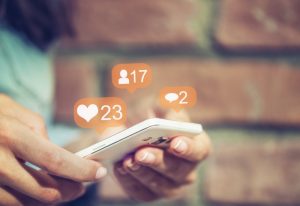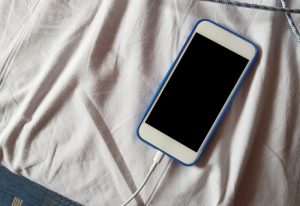Social media sites such as Facebook, Instagram and Snapchat have become a multibillion-dollar industry. This modern phenomenon can provide a variety of benefits for our lives, but it also appears to have drawbacks as well. According to a new study examining social media and sleep, spending too much time on social media may contribute to insomnia and sleep loss.
The Rise of Social Media

Although researchers define more than an hour of social media use every day as excessive, most users exceed that, reporting an average of four hours a day. The majority of young adults in most developed countries use social media. In addition, almost three in ten Americans report that they are on social media “almost constantly.” This may have an impact that we are only just beginning to understand.
New Research: Is There a Link Between Social Media and Sleep Loss?
Social media definitely has its pros and cons. However, sleepless nights may be one of the major drawbacks. Losing sleep can actually be dangerous over a long period of time, leading to an increase in diseases such as cancer and heart disease.
To examine the impact of social media on sleep, researchers sent a questionnaire on social media behavior and sleeping habits to almost 1800 people. Around 30 percent of the people who responded reported having trouble sleeping several days a week. These same people were more likely than other participants to spend more than an hour per day on social media.
Although there is definitely a link between sleep disorders and social media use, many people questions the nature of the causation. Does social media cause sleeplessness or does insomnia lead to increased social media use? The picture becomes even more confused when you begin looking at different groups who are using social media, each with their own motivation and their own way of approaching the medium.
Do Young Adults Have Additional Risk?
Although adults are well-represented online, young adults and teens make up a huge proportion of the audience. This is unfortunate because these young people appear to have additional risks when they spend a great deal of time on social media.
Just as with their older counterparts, teens and young adults who use social media excessively are more likely to suffer from insomnia and other sleep disorders. In fact, teens who spend more than one hour a day online at these websites are around three times as likely to have trouble sleeping.
The matter becomes even more serious for teens who are not always having positive interactions online. According to one study, teens who are cyber-bullied or otherwise mistreated while online have an even greater risk of disordered sleep.
Although it can be difficult to get your teens off their phones or devices, it may be essential to their sleep, and therefore their health. This is particularly true if you suspect that your child is the victim of maltreatment. A wide variety of young people are having bad experiences online that may be creating lifelong scars, and not just relating to their self-esteem.
Getting Sleep in the Age of Social Media

- Stop using social media and all devices an hour before going to bed.
- Charge phones overnight in another room, where they are out of sight and also out of earshot.
- Use the dim setting on your phone so there is less light to trick your brain into thinking it is daytime.
- Try to go to sleep and wake up at the same time every day, even on weekends.
- Consider taking a melatonin supplement if you feel you are having difficulty falling asleep.
Social media has changed a great deal about our society and the way we interact with each other. However, it does not have to change whether we get enough sleep. Learning to set boundaries with social media and your devices from an early age is essential to maintaining good physical and mental health throughout your life.







